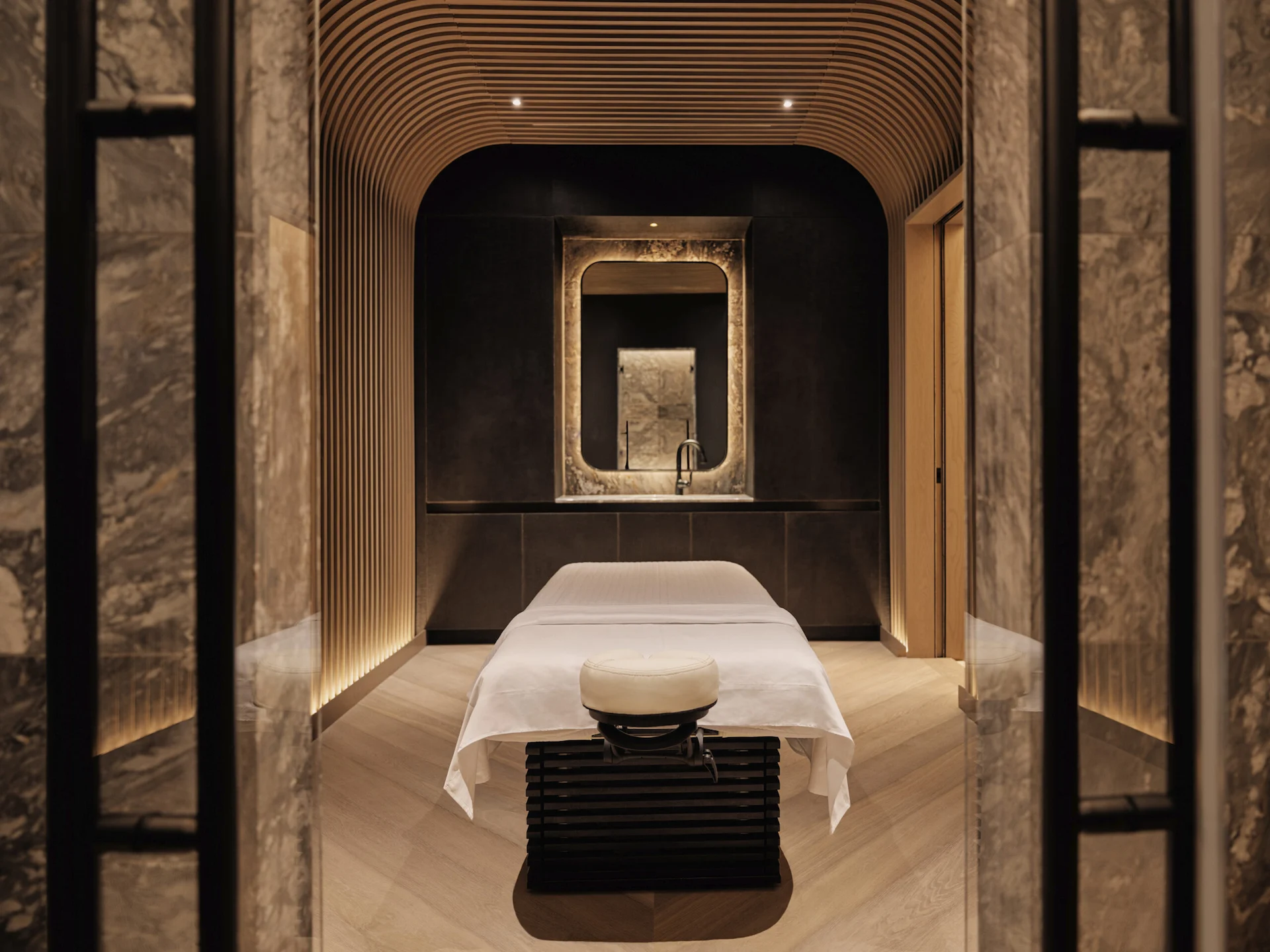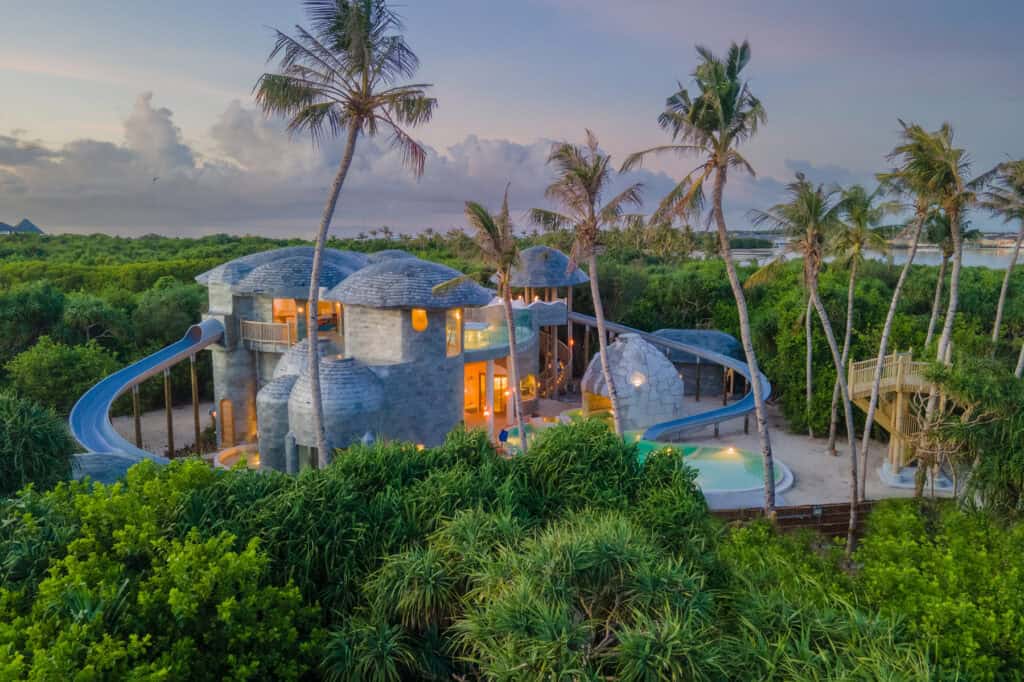It’s often used as a trendy buzzword, but for Six Senses Hotels, Resorts & Spas, sustainability has been a way of life long before anti-straw movements and youth marches. “In the past, people criticised our ethos a lot in the hotel industry,” says Murray Aitken, General Manager for Six Senses Singapore. “We’re fine with that—mainly because they don’t do it anymore. Now they’re looking at us saying, hey, maybe we should be doing that too.”
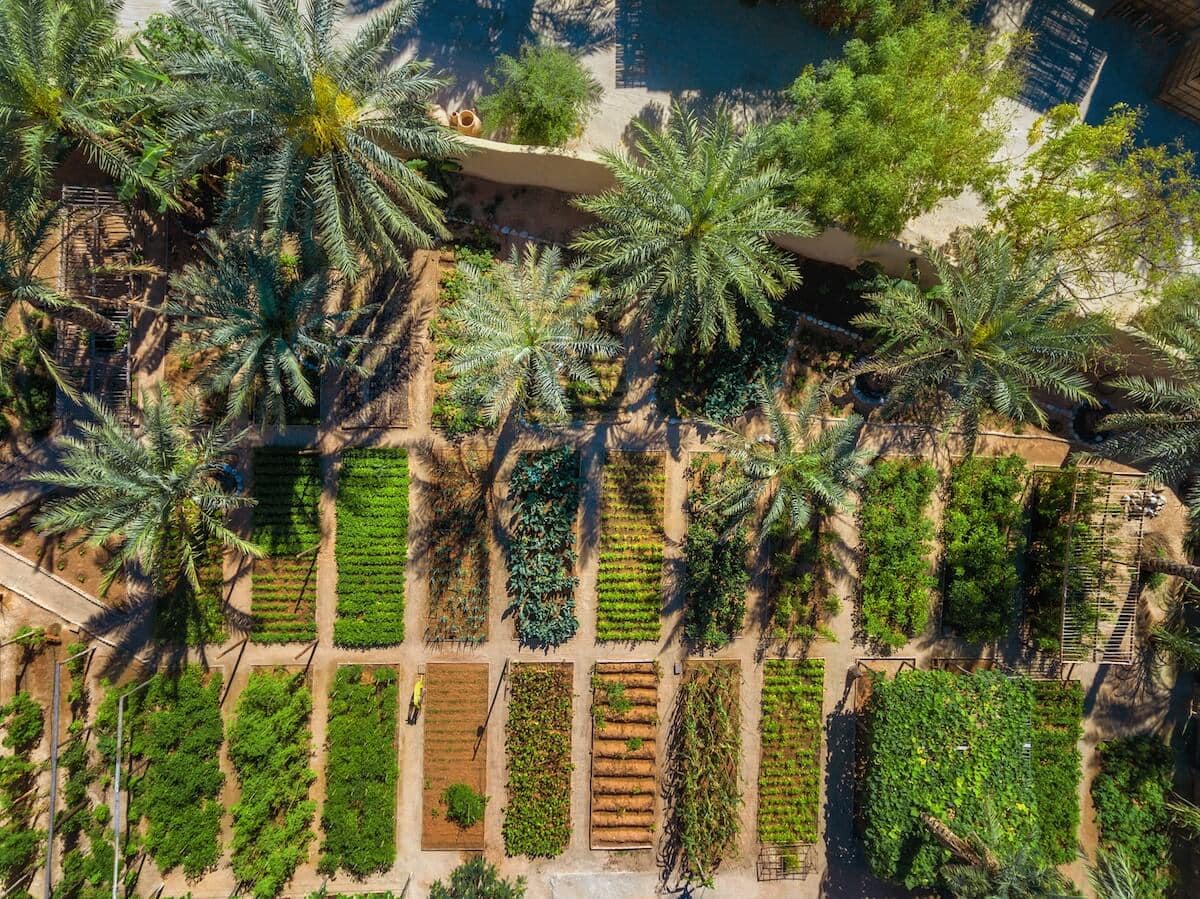
Founded in 1995, Six Senses take a truly holistic approach to wellness, focussing not only on the health of the guest but the wellbeing of the community and the environmental impact on the destination. “We are implementing a zero-waste movement throughout the whole hotel operation,” explains Chew Siew Moon, the Sustainability Manager for Six Senses Singapore. “When there is unnecessary packaging waste, we refuse it. If we can’t refuse it, we try to reduce what we do need, and also try where we can to reuse it. There are some things we must buy in order to run the operation. Finally, the last resort is to recycle. Our first choice is always refuse, otherwise, we create the demand for the product we’re trying to avoid.”
In 2017, Six Senses diverted 45% of their solid waste away from landfills, created 223,000 kilos of compost and natural fertiliser, and used nearly 1.1 million reusable glass bottles in place of single-use plastic.
Moon’s dedication has paid off, as the two Six Senses Singapore properties, Maxwell and Duxton, are two of only three hotels in Singapore who are carbon neutral. Each Six Senses property now has a dedicated Sustainability Manager who works alongside the GM to ensure the property follows these guiding principles—as Moon says, shes “the troublemaker” who keeps every department in check by asking the hard questions.
See also: 5 Eco-Friendly Wellness Retreats Who Are Saying No To Plastic
The Sustainability Manager keeps each property on track for their goal—to be plastic-free by 2022—and ensures everyone is constantly striving to be more efficient and eco-friendly. Six Senses Fiji operates on an off-grid solar installation, while Six Senses Douro Valley protects a four-hectare woodland on a UNESCO World Heritage Site, and Six Senses Zil Payson in Seychelles works closely with marine conservationists to rehabilitate and recover the natural coral and marine life. These achievements are not just the work of the Sustainability Manager, though: Six Senses makes sustainability an integral part of the brands DNA not simply through policy but through their team.
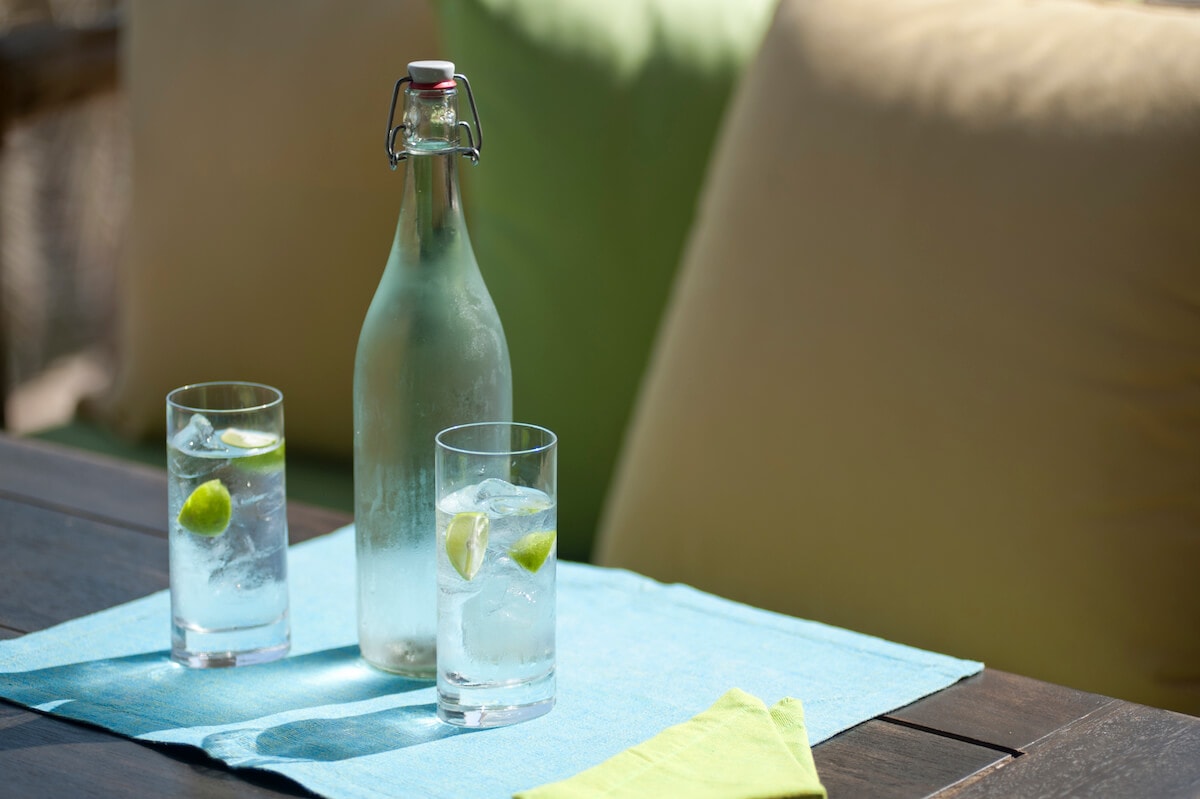
“I’ve known Six Senses CEO, Neil Jacobs, since 2001,” says Aitken. “When he joined Six Senses in 2012, he started to steer the company in a new direction—to the direction that it is in today. He’d always had sustainability and wellness as a pathway or core value of the company. Since then, I’d wanted to be a part of it, so when he asked me to come onboard for Six Senses Singapore, I didn’t hesitate. For me personally, and I think it’s the same for all of our general managers and a lot of our other managers, hosts and employees, we live the sustainability.”
See also: How To Live Plastic-Free In Hong Kong
The proof is in the pudding. In 2017, Six Senses diverted 45% of their solid waste away from landfills, created 223,000 kilos of compost and natural fertiliser, and used nearly 1.1 million reusable glass bottles in place of single-use plastic. As a relatively small boutique brand, the numbers are astronishing—and a stark demonstration of how much waste goes through the hospitality industry and how much difference one brand can make.
Beyond waste, water and energy, Six Senses commitment to sustainability extends to the greater community. Each property features its own Earth Lab, used to host events or workshops to educate and inspire both guests and the local community. Furthermore, the Six Senses Sustainability Fund—comprised of proceeds from in-house bottled water sales and unique property gifts—amounted to US$545,860 in 2017, and was distributed among five projects, including disaster relief, ecotourism education and local schools. Six Senses has created a symbiotic relationship with its local communities, relying on them for services and products, while creating jobs in return (more than 2,800 around the globe in 2017).
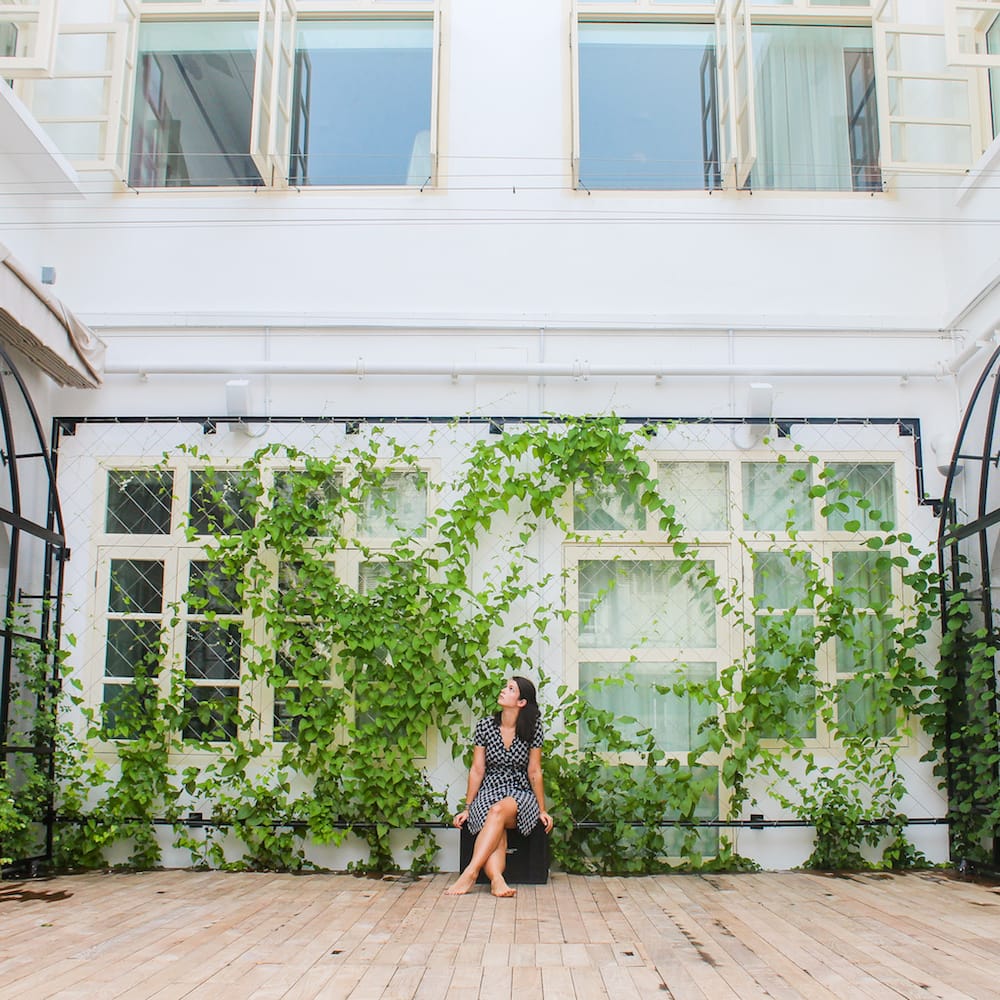
What Six Senses has identified is that sustainability policies have to be part of a larger economy to be sustainable in themselves. The effect on the supply chain is more evident in the remoter resort locations: with less competition, Six Senses sustainability policies become the new normal. Even so, the attention to community building has enabled even Six Senses Singapore, the brand’s first urban property, to make an impact on its suppliers.
“When you go to a supplier and say, ‘We won’t accept your produce in styrofoam boxes,’ he’s like, well, I have other buyers,” explains Aitken. “Then, two or three weeks later, they come back to you, and say, ‘Well you know what, I’ve been thinking about what you said and it makes sense—if you’re going to buy the plastic container that is reusable, I’m going to save money in the long run.’ They start doing it with their other clients, and you realise, hey, what we’re doing here is a little revolution.”
The effect on the supply chain is more evident in the remoter resort locations: with less competition, Six Senses sustainability policies become the new normal.
Responsible sourcing and supply are of key importance to Six Senses sustainability and wellness ethos, Aitken continues: “We can’t just buy from any seller, who doesn’t know where the product’s coming from. We have guiding principles on how we should purchase and how we should structure our menus—making sure there’s vegan dishes, gluten-free, sugar-free, dairy-free, so that we’re catering to all from a wellness perspective—so knowing that everything you eat in our property is coming from a sustainable source and organic source is vital. It has to have the certification. We buy fish from a sustainable source, and follow very closely the wildlife guides and watch lists.”
See also: Could Wellness Travel Be The Solution To Overtourism?
What Six Senses specialise in is creating a culture of sustainability, where it’s not a case of ‘giving up’ or sacrificing comforts or luxuries, but simply doing them better from the offset. It’s an attitude that has been coded into guidelines for all the resorts for years—something which more businesses, and even governments, could learn from.
The future looks green—or greener—for Six Senses, but Aitken is under no illusions that the future of sustainability will be easy. With many companies boldly stating they will be single-use plastic free by next year, Six Senses has a more conservative timeline of 2022. Why is a company so advanced in its sustainability mission not shooting for the stars? “You know, we originally said 2020 and then we sat down to talk about it. We decided, let’s be reasonable, we’ll make it 2022 so it can be fixed properly. We only have a few years to really find solutions to some of the things we depend on. You have to change your mindset; you have to change your practices. The more noise we make, the more people will realise that this is a serious matter.”


